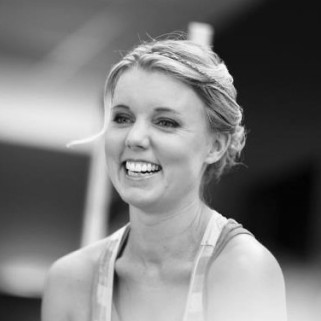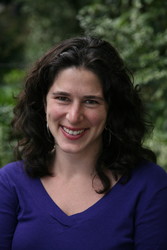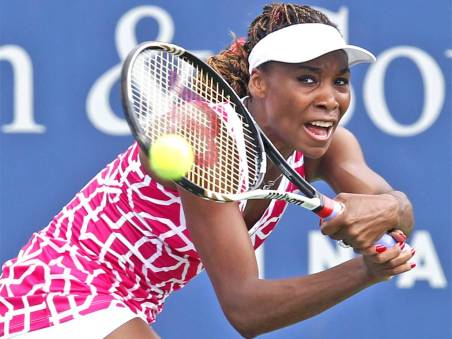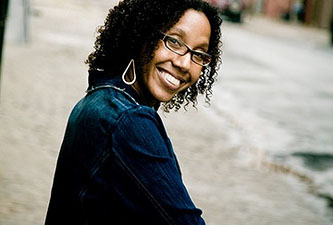In the media is a fortnightly round-up of features written by, about or containing female writers that have appeared during the previous fortnight and I think are insightful, interesting and/or thought provoking. Linking to them is not necessarily a sign that I agree with everything that’s said but it’s definitely an indication that they’ve made me think. I’m using the term ‘media’ to include social media, so links to blog posts as well as as traditional media are likely and the categories used are a guide, not definitives.
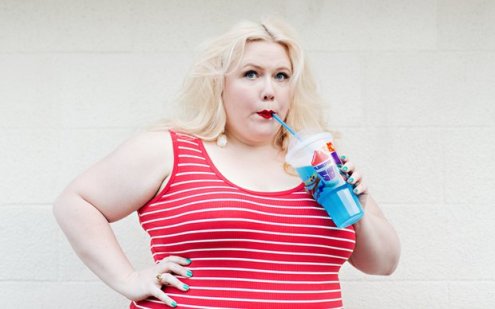
It seems there’s been a return to traditional topics this fortnight. Having children (or not) and body image are back at the top of the agenda. On the former, Daisy Buchanan wrote, ‘I’m economically infertile, and I’ve made peace with that‘ on The Pool; Stephanie Merritt, ‘Sheryl Sandberg admits she did not get how hard it is to be a single mother‘ on The Pool; Ashley Patronyak, ‘A Slight Risk‘ in Guernica; Jordan Rosenfeld, ‘On Discovering Real Mothers on the Page‘ on Literary Hub; Diana Abu-Jaber, ‘Motherhood vs. Art: There Is No Wrong Choice‘ on Literary Hub; Rivka Galchin, ‘Why Does Literature Hate Babies‘ on Literary Hub; Willa Paskin, ‘Speak, Motherhood‘ on Slate; Jennifer Gilmore,’I’m Glad My Mother Worked‘ on The Cut, and Louise O’Neill, ‘I think I would be a good mother; I just don’t want to be one‘ in The Irish Examiner.
Discussions about body image seems to be around the publication of two new books: Shrill by Lindy West and Dietland by Sarai Walker. West wrote, ‘The ‘perfect body’ is a lie. I believed it for a long time and let it shrink my life‘ in The Guardian. Walker was interviewed in The Bookseller and The Pool. And Mallory Ortberg wrote, ‘“We would have paid her the same if she weighed 500 pounds”: Publishing, Weight, and Writers Who Are “Hard To Look At”‘ in The Toast
And then there was this: the men-only bookclub who only read books about men. LV Anderson at Slate decided to tell us all off for being outraged about it, ‘Feminists Shouldn’t Roll Our Eyes at Men-Only Books Clubs. We Should Applaud Them‘.
This fortnight saw the deaths of Sally Brampton and Geek Love author, Katherine Dunn. Kathryn Flett wrote, ‘Sally Brampton – the woman who made ‘Elle girls’ the new normal‘ in The Guardian and Daisy Buchanan wrote, ‘Depression is not a battle that can be won or lost‘ on The Pool.
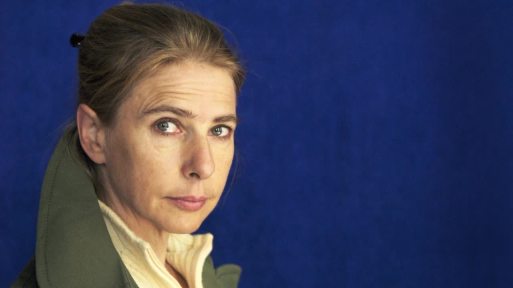
The best of the rest:
On or about books/writers/language:
- Bethanne Patrick, ‘I Am Jessa Crispin’s Problem with Publishing‘ on Literary Hub
- Kate Morton, ‘I wrote The House at Riverton during my baby’s nap times‘ in The Telegraph
- Micah Perks, ‘How My Best Friend Willa Cather Helped Me Beat Stage Fright‘ on Literary Hub
- Alison Flood, ‘Kate Mosse speaks up for European literature in face of Brexit‘ in The Guardian
- Anne Boyd Rioux, ‘The Diminution of Women Writers: An American Tradition‘ on Literary Hub
- Flora Willis, ‘Let Me Be Frank: I Love Dick, So Sad Today, The Argonauts and ‘confessional’ literature‘ on Serpent’s Tail
- Brooke Hauser, ‘Take It or Leave It: Guidebooks for Single Girls‘ on The Millions
- Louisa Treger, ‘From Violinist to Writer‘ on The Literary Sofa
- Andrew Dickson, ‘‘The strange thing is we howled with laughter’: Sarah Kane’s enigmatic last play‘ in The Guardian
- Jami Attenberg, ‘Appreciating the View‘ on Lenny
- Sian Cain, ‘Lionel Shriver: Donald Trump’s too far-fetched for fiction‘ in The Guardian
- Dana Schwartz, ‘Why Hasn’t ‘The Late Show’ Invited Any Female Novelists?‘ on Observer
- Eileen Pollack, ‘Why Fiction Needs More Women Scientists‘ on Literary Hub
- Ali Smith, ‘History of violence: on Alan Garner‘ in the New Statesman
- Alexandra Alter, ‘Masters of Prose Warm Up to Children’s Picture Books‘ in The New York Times
- Charlotte Geater, ‘When Romance Comics Hated Women‘ on Women Write About Comics
- Marni Graff, ‘Using Crime Fiction to Present Fully Formed Muslim Characters‘ on Literary Hub
- Edna O’Brien, ‘Is literature a dying animal?‘ in The Guardian
- Anne Enright, ‘On Writing‘ on the Baileys Women’s Prize for Fiction
- Martin Chilton, ‘Valley of the Dolls: from reject to 30-million best-seller‘ in The Telegraph
- Hannah Gersen, ‘No More Dead Mothers: Reading, Writing and Grieving‘ on Literary Hub
- Elina Penner, ‘‘Disney For Adults’: How Trashy Romance Novels Conquered the World‘ on Broadly
- Jennifer R. Bernstein, ‘Why Literature Needs Psychology‘ on Literary Hub
- Katherine Cowdry, ‘Sharlene Wen-Ning Teo wins inaugural Deborah Rogers Writers’ Award‘ in The Bookseller
- Linda Grey Sexton, ‘Diving Deep to Explore the Wreck: Linda Gray Sexton on the Path to Inspiration‘ on Read Her Like an Open Book
- Emma Donoghue, ‘“I’ve ended up having a family as well as being a lesbian. I thought it would be one or the other”’ in The Guardian
- Dorothy Koomson, ‘It breaks my heart to see library closures‘ in The Telegraph
- Jia Tolentino, ‘Sheesh, There’s a Reason Women Are ‘Totally Crushing It’ At the Confessional Essay‘ on Jezebel
- Joan Didion, ‘California Notes‘ in The New York Review of Books
- Katherine Cowdry, ‘McInerney, McCrea, Rochester shortlisted for Desmond Elliott Prize‘ in The Bookseller
- Lorraine Berry, ‘‘They’: the singular pronoun that could solve sexism in English‘ in The Guardian
- Anne Boyd Rioux, ‘Women Writers You Should Know: Alice Dunbar-Nelson‘ in The Toast
- Lionel Shriver’s guide to dystopia in The Telegraph
- Maaza Mengiste, ‘What Is the Writer’s Place in a Violent World?‘ on Literary Hub
- Lydia Millet, ‘Love Is Boring and Hard to Write About, And Yet…‘ on Literary Hub
- Hope Jahren, ‘Lab Girl‘ on Powell’s Books
- Casey N. Cep, ‘What Two Forgotten Pieces Tell Us About Harper Lee‘ in The New Yorker
- Michele Filgate, ‘Writers, The Loneliest Artists of All‘ on Literary Hub
- Elisa Gabbert, ‘The Point of Tangency‘ on The Smart Set
- Holly Smale, ‘Why children and teens need funny books‘ in The Guardian
- Elizabeth Hogg, ‘“Cool Girls” don’t like Hillary: What “Gone Girl” and “30 Rock” taught me about politics, feminism and smashing the dude-bro patriarchy‘ on Slate
- Pamela Erens, ‘Labored Prose‘ on Slate
- Lucy Delap, ‘Bookselling and the Feminist Past‘ on OUP
- Nicole Lee, ‘Roxane Gay on Lemonade: ‘by the power of Beyoncé, I’ll overcome my fear’‘ in The Guardian
- Yvette Edwards, ‘The Anti-Canon: Douglas Hall’s In Miserable Slavery: Thomas Thistlewood in Jamaica, 1750-86‘ on Influx Press

Personal essays/memoir:
- Melissa Broder, ‘Taking off the mask of OK-ness, and tweeting about my anxiety‘ on The Pool
- Ana Castillo, ‘When Two Feminists of Color Fall in Love‘ on Literary Hub
- Alana Massey, ‘What Happened When I Finally Made Money‘ in Elle
- Rachel Monroe, ‘The Cat Psychic‘ on Hazlitt
- M.K. Hall, ‘Go Boldly, Dear Dreamer‘ on The Rumpus
- Rebecca Schiff, ‘Why I Quit Online Dating‘ on The Cut
- Elizabeth Day, ‘What a year of living out of a suitcase taught me‘ on The Pool
- Natashia Deón, ‘My Son’s Lifelong Silence Has Taught Me To Listen‘ on Buzzfeed
- Rivka Galchen, ‘My Friends’ Moms‘ in The New Yorker
- Rebecca Worby, ‘The Desert Half‘ on Catapult
- Bernadette Murphy, ‘Evolve or Die‘ on The Rumpus
- Sara Pascoe, ‘I’ve started getting “hangover shame” – only for my entire adolescence‘ in the New Statesman
- Nina Stibbe, ‘A love letter to Leicester‘ in The Telegraph
- Juleyka Lantigua-Williams, ‘Optimus Prime and Me‘ in The Atlantic
- Kat Chow, ‘In My Mom’s Shoes‘ on Lenny
- Alyson Foster, ‘The View from the Fourth Floor‘ on Guernica
- Anna March, ‘You’re Just a Sinner I Am Told: Prince & the Sexual Revolution‘ on The Rumpus
- Sara Elizabeth Grossman, ‘Pastures‘ on Blunderbuss

Feminism:
- Dayna Evans, ‘Why Does the Media Keep Giving Abusive Men Platforms for Redemption?‘ in The Cut
- Laura June, ‘How Do I Avoid Giving My Daughter Body Issues?‘ in The Cut
- Jendella Benson, ‘Why are black girls killing each other – or trying to?‘ on Media Diversified
- Gaby Hinsliff, ‘The key to being a successful woman? Knowing what not to do‘ in The Guardian
- Anna Sillman, ‘Kelly Ripa, Sharon Osbourne, and the Power of the Personal Day‘ in The Cut
- Jamilah Lemieux, ‘bell hooks and the Sour ‘Lemonade’ Review‘ on Ebony
- Florina Rodov, ‘The Homemade Abortion: a Caged Bird, a Quinceaneara, and the American Dream‘ on Electric Literature
- Varaidzo, ‘Conversations About Consent: Why ‘No Means No’ Is Not Enough‘ on Gal-Dem
- Mona Eltahawy, ‘Sex Talk for Muslim Women‘ in The New York Times
- Dolly Alderton, ‘What women actually want‘ on The Pool
- Laura Maw, ‘Rhythms of Fear‘ on Hazlitt

Society and Politics:
- Erika Adams, ‘Remote Year Promised to Combine Work and Travel. Was It Too Good to Be True?‘ on Atlas Obscura
- Melanie Thernstrom, ‘When Do You Give Up On Treating a Child With Cancer?‘ in The New York Times Magazine
- Jenn Abelson, Bella English, Jonathan Saltzman, and Todd Wallack, ‘Private Schools, Painful Secrets‘ in The Boston Globe
- Ruby Tandoh, ‘The Unhealthy Truth Behind ‘Wellness’ and ‘Clean Eating’‘ in Vice
- Anna Merlan, ‘Inside Superstar Machine, Which Ex-Members Say Is a Cult Preying on New York’s Creative Women‘ on Jezebel
- Andrea Maurer, ‘Dear Sun, Please Shine On Us‘ in Guernica
- Nadia Shireen, ‘Waking up in Sadiq’s London‘ on The Pool
- Eleanor Margolis, ‘The revenge revival: how public displays of vengeance became an industry‘ in the New Statesman
- Patricia Engel, ‘Cuba Crónica‘ on Catapult
- Chimene Suleyman, ‘Sadiq Khan may not represent a win for all Muslims, nor should he‘ on Media Diversified
- Eva Holland, ‘Cruising Through the End of the World‘ on Pacific Standard
- Harriet Ryan, Lisa Girion and Scott Glover, ‘‘You Want a Description of Hell?’ Oxycontin’s 12-Hour Problem‘ in The LA Times
- Rebecca J. Rosen, ‘The Circles of American Financial Hell‘ in The Atlantic
- Rebecca Asher, ‘Boys face just as much social pressure as girls‘ on The Pool
- Syreeta McFadden, ‘We’re in an amazing black cultural moment. Cue predictable white backlash‘ in The Observer

Film, Television, Music, Art, Fashion and Sport:
- Olivia Laing, ‘David Wojnarowicz: still fighting prejudice 24 years after his death‘ in The Guardian
- Keah Brown, ‘Love, Disability, and Movies‘ on Catapult
- Anna Leszkiewicz, ‘“I’m done taking pictures”: Justin Bieber, fandom and mental health‘ in the New Statesman
- Carrie Brownstein, ‘Call Me Crazy‘ in The New Yorker
- Jamie Moore, ‘Beyoncé’s Lemonade Is Made for Readers‘ on BookRiot
- Chloe Cadwalladr, ‘Why working-class actors are a disappearing breed’ in The Observer
- Hannah Ewens, ‘How ‘The Craft’ Realized the Power of Teen Girls and Made Witchcraft Cool‘ on Vice
- Alexandra Molotkow, ‘Teen Music Is Wasted on the Teens‘ on The Cut
- Ira Boudway and Kate Smith, ‘The Braves Play Taxpayers Better Than They Play Baseball‘ on Bloomberg
- Brogan Driscoll, ‘Put It Away, Madonna: We Like Our Older Women Invisible And Devoid Of Sexuality‘ on the Huffington Post

The interviews/profiles:
- Veronica Roth in The Guardian
- Louise Erdrich in The New York Times and Publishers Weekly
- Paula Whyman on Bloom
- Sara Pascoe on Standard Issue
- Lionel Shriver in The Bookseller and The Guardian
- Sophie Kinsella in The Guardian
- Ally Hilfiger in The Cut
- Yi Shun Lai on Write by Night
- Andi Zeisler in The Guardian
- Jesse Crispin in The Guardian and on Vulture
- Leslie Jamison on Literary Hub
- Hayley Webster on All the Words
- Sarah Perry on All the Words
- Shelley Harris on All the Words
- Fiona Melrose on All the Words
- Keris Stainton on All the Words
- Helen McClory on All the Words
- Melissa Broder in The Guardian
- Abbey Clancy in The Telegraph
- Janine di Giovanni in The Paris Review
- Zadie Smith on Refinery 29
- Harriet Reuter Hapgood on Buzzed
- Lydia Millet on Electric Literature
- Brenda Miller on The Rumpus
- Sarah Mlynowski and Shannon Hale on Publishers Weekly
- Fiona Sampson on Literateur
- Robin Black on Electric Literature
- Lisa McInerney on The Desmond Elliott Prize
- Esmé Weijun Wang on Bookslut
- Pamela Erens on The Millions
- Geling Yan on China in WW2
- Margo Jefferson in Vogue
- Lydia Davis in The Los Angeles Review of Books

The regular columnists:
- Laurie Penny in The New Statesman
- Lucy Mangan in Stylist
- Roxane Gay in The Guardian US
- Yasmin Alibhai-Brown in The Independent
- Caitlin Moran in The Times
- Lauren Laverne in The Pool
- Ella Risbridger in The Pool
- Sali Hughes in The Pool
- Bim Adewunmi in The Guardian
- Sophie Heawood in The Guardian
- Eva Wiseman in The Observer
- Tracey Thorn in The New Statesman
- Chimene Suleyman and Maya Goodfellow on Media Diversified
- Josie Pickens on Ebony
- Bridget Christie in The Guardian
- Lizzy Kremer on Publishing for Humans
- Juno Dawson in Glamour
- Kashana Cauley on Catapult
- Louise O’Neill in the Irish Examiner






